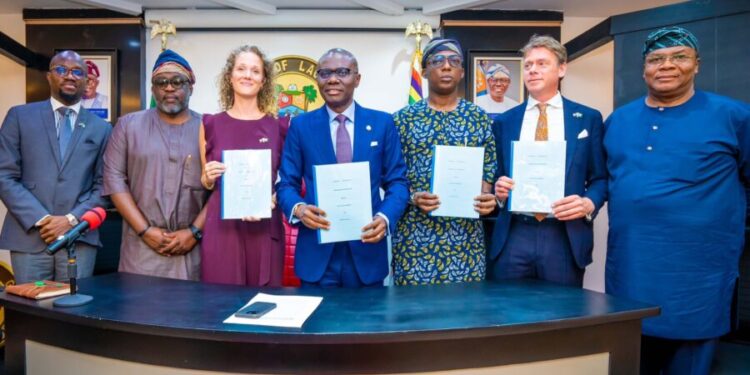Lagos State Government on Tuesday hinted of its current plan to build a waste-to-energy power plant that will supply about 40,000 homes electricity when the project is completed.
The State Governor, Babajide Sanwo-Olu, who disclosed this in his X-handle, confirmed that the government had sealed an agreement with a Dutch-owned Waste Consortium to flag off the clean energy project as part of its efforts to transform the huge wastes in the state to development catalyst.
According to him, the plant will process about 2,250 tonnes of waste daily and transform it into 60-75 megawatts (MW) of electricity for supply to thousands of homes in Epe community and adjourning surburbs.
Sanwo-Olu stated: “Today, I announced that Lagos State has formalized a groundbreaking partnership with Harvest Waste Consortium to build a high-efficiency Waste-to Energy plant on the Epe landfill. This project will transform our waste management and energy production.
“The new Waste-to-Energy plant will process 2,250 tonnes of waste daily, generating 60-75 megawatts of electricity annually.
“This innovation will power 40,000 home, significantly enhancing our energy security and reducing our environmental footprint”, he added.
The governor maintained that the partnership with the Dutch firm represented a major step forward in the administration’s waste management strategy with the potential of reducing 550,000 metric tonnes of CO@ emissions daily, improving air quality, and diverting 95% of the wastes from landfills.
The governor further clarified: “Beyond environmental benefits, this project will stimulate economic activities, attract major investments, and create jobs in Lagos. It’s a testament to our commitment to building a cleaner, healthier, and more sustainable city for all.
“With the full backing of the Dutch government and the expertise of Harvest Waste Consortium, we are turning our waste into wealth. Together, we are building a better Lagos”, he added.
It would be recalled that an Executive Director of the United Nations Environment Programme (UNEP), Inger Andersen, recently said that cutting methane remained the strongest lever to slowing climate change negative impacts over the next 25 years and very crucial to the current collective efforts globally to reduce CO2 emissions.
In demonstration of its commitment to the ‘Go Green’ global agenda, the Federal Government has expressed its readiness to enter a $2.5 billion carbon market under the Nigeria Energy Transition Plan with a view to significantly reducing carbon emissions in the country.






